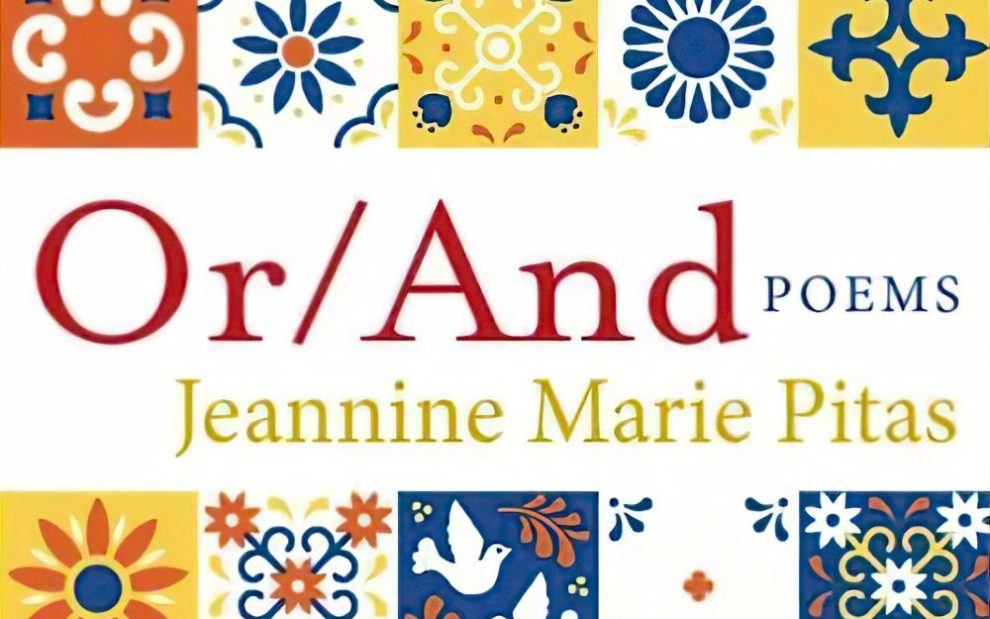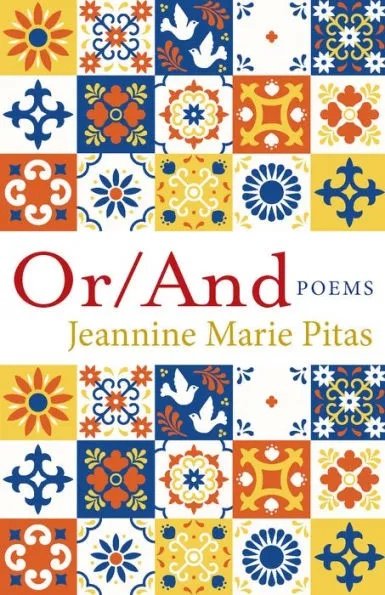Or/And
By Jeannine Marie Pitas (Paraclete Press, 2023)
“Plato’s Symposium did not quite get it,” writes Jeannine Marie Pitas. “We are not severed eight-limbed creatures; we are broken million-pointed stars. We yearn for our original light.”
The poem, one of more than 50 in Pitas’ collection Or/And (Paraclete Press) is titled “Once you have seen the beatific vision…” Usually, I admit, I would pass over a poem with this title, anticipating the sort of tame and approved juxtapositions I typically associate with the phrase “the Catholic imagination.” But I had just read the poem that precedes it in Pitas’ book, “June 24,” a poem for the feast of St. John the Baptist.
Catholic writers who take John as their subject matter often fixate on the women in the story of the prophet’s death, Herodias and Salome, as wicked foils to the saint’s virtue, and as instances of the kind of wanton, rebellious women who must be chastened but can also, covertly, be fetishized. Pitas turns the story around so that John stands not in opposition to women but in a relationship of benevolence and empathy.
Fast-forward two thousand years. The poem describes a girl who bears John’s name, dancing around a bonfire, “exalting in her own beauty. / The price will be her head.”
The poem goes on to describe an act of violence as a “man she thought she loved” smashes her into a wall. The girl’s head falls off. For years, she carries the head in “a backpack or purse,” wearing a replacement head instead, until finally, near the ruins of a Greek basilica, she meets John the Baptist. Together with his cousin Jesus, the prophet stitches her head back on. Then he and Jesus invite her to join them helping “others who’ve lost their heads.”
Drawing on body horror and allusions to traditional iconography to connect the murder of John the Baptist with the violence done to women today, “June 24” suggests that the poet is responding to a profound call not only to create but to participate in the work of healing. And it made me enthusiastic to read on.
Throughout the book, Pitas continues to draw on Christian devotional traditions as well as images from the classics and European folk history, telling the stories of primeval dreads, of nations torn by war, of the complicated experiences and allegiances of refugees. One theme winding through the collection is the ambiguity of the idea of “home” itself, as the poems traverse different nations and geographies, from Poland to Greece to New Mexico.
Ultimately, though, as Pitas said in the book launch celebration for Or/And, this is a book about choices. This is especially clear in the prose poem “Or,” which talks about dark woods and roads that diverge, about trying to figure out which self to be, and the realization so many women have that we can’t have it all or do it all. “Or” is about the poignancy of regret and the ambiguity of boundary lines. “A therapist says you need to learn to say ‘no,’ that boundaries form identity, but you rally against those who enforce political borders,” Pitas writes.
Pitas is a translator as well as an English teacher, and this poem, as well as others in the collection, is a negotiation with the slippery nature of language and definitions, but also with the unreliable nature of time, in which past selves and things that could have been flicker on the screen of the imagination.
“If God exists, why did my husband come back from the war / without a leg?” a voice asks, in the poem “Simone Weil answers her Letters.” There’s no answer to this one, except that, “when they weep / angels and saints weep too.”
In Pitas’ poems, the beatific vision is something one goes looking for not in some perfect beyond, but here on this Earth, in the place where we don’t get the answers, where we don’t get to be all the people we’d planned to be, where the things we desire are often out of reach. Or/And reminds us to look for “our original light” here where we are, fragmented as we are.
Yes, some of us may be carrying our heads around in our purses. We may not even be telling anyone they’re there. But, as Pitas’ poetry reminds us, as long as we’re still carrying these broken pieces, we haven’t given up hope for healing.
Image: Crop from Or/And cover
















Add comment